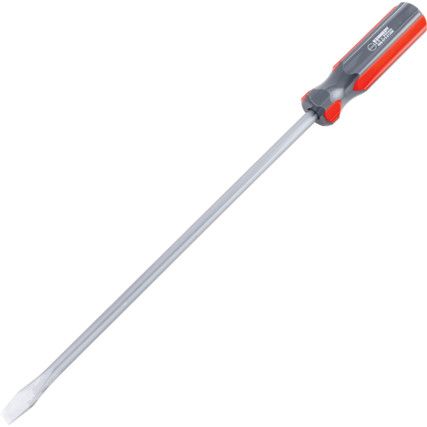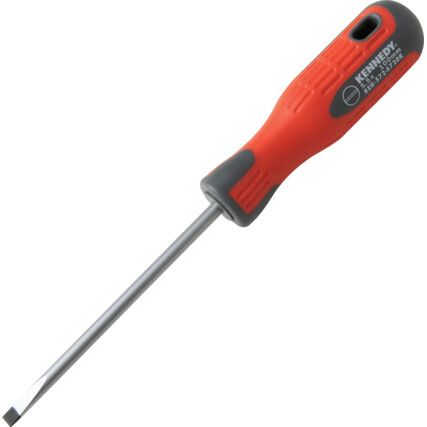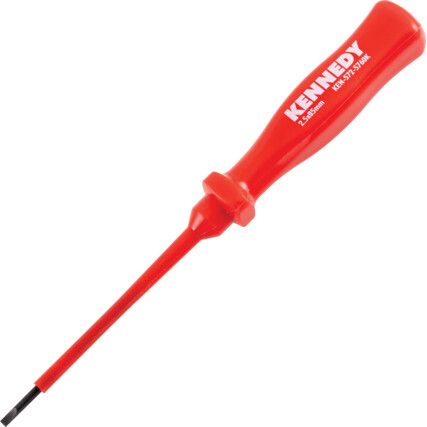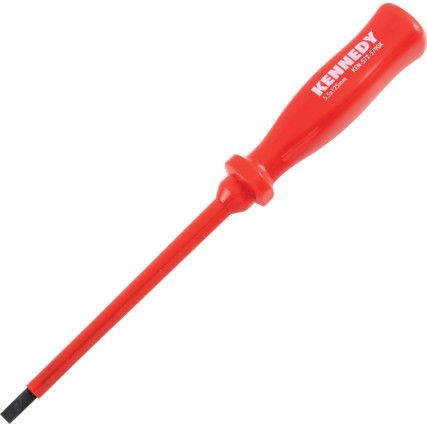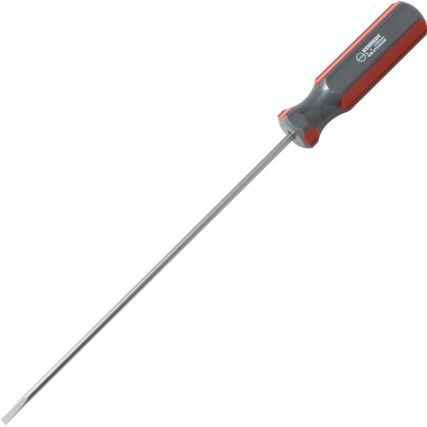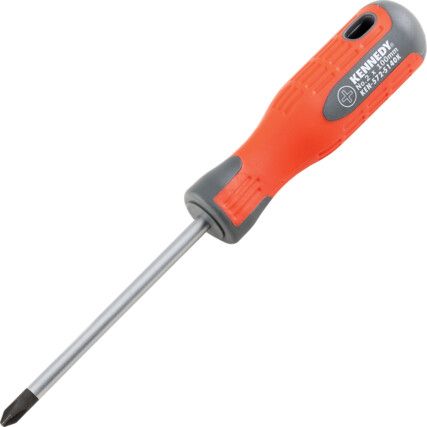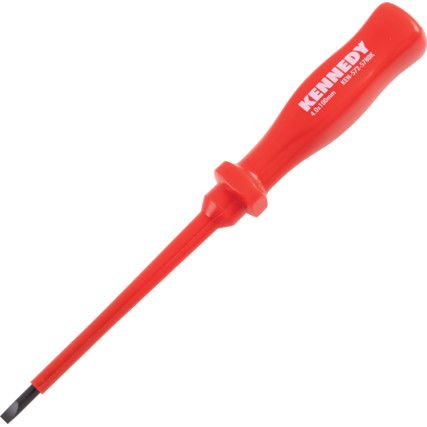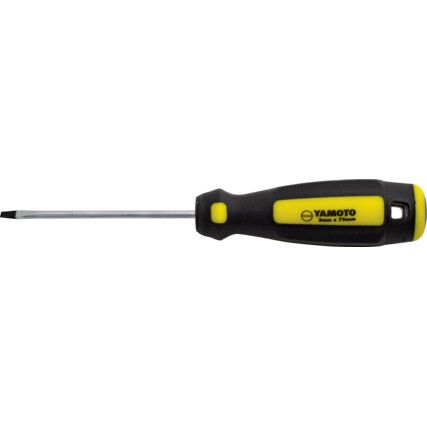Screwdrivers
Screwdrivers a are a common hand tool used for inserting and removing screws. They come in many shapes and sizes with a variety of head shapes to handle all manner of screw types. They are the stalwart of any tool kit and are used by professionals and amateur DIY enthusiasts the world over.
Cromwell stocks a large range of screwdrivers in a vast array of sizes, with well-known brands such as Stanley, Yamoto and Facom , so you're bound to find the right tool for the job.
Types of screwdrivers
Screwdrivers whilst similar in application, come in a variety of different types, to suit specific jobs. To help understand more about their differences and applications Cromwell has collected a list of the most common types and their features and benefits.
Flathead screwdriver - The most common type of screwdriver, the slot or flat-headed screwdriver has a flattened tip used for screws with a straight linear recess. Their flat blade can also lend itself as a prying tool.
Phillips screwdriver - Also known as cross-head screwdrivers, Phillips screwdrivers are one of the most common types next to the flathead, and are purposely designed to fit screws with Phillips heads, which have a cross-shaped recess. The invention of the Phillips head was designed to cope with higher torsion.
Torx/Star screwdriver - Torx is a trademarked name for a type of screw head with a six-point star-shaped recess. They are commonly known as star head screwdrivers. An added benefit of this that they allow more torque to be applied, making them ideal for mechanical production.
Insulated screwdrivers - Constructed from non-conductive materials such as rubber, these tools are ideal for electricians and other applications where there is a risk of electrical conduction.
Ratchet screwdrivers - These have a multidirectional ratchet handle allowing for easy application of torque in clockwise and anticlockwise directions, reducing strain. Some types of ratchet screwdriver feature interchangeable heads.
Torque screwdrivers - Acting in a similar way to a torque wrench, torque screwdrivers operate in a ratcheting fashion for easy application of torque on a fastener. They feature a torque-limiting clutch that limits applied force beyond a certain threshold.
Tri-Wing screwdriver - These are used for specific devices and mainly feature quite small tips to enable use with smaller screws and components.
Pozidriv screwdrivers - These are designed as an upgraded Phillips head screwdriver to minimise camming out when more force is used.
Hex screwdriver - These exist to replace Allen or hex keys and function in much the same way. Although less popular they are still a useful addition to your toolbox.
Square screwdriver - The square-headed screwdriver fits screws with a square-shaped recess. They offer increased purchase in the slot and as a result help speed up tightening.
Precision screwdriver- If you ever need to tighten your glasses these are the screwdrivers to use! They are used for very small devices where extremely small screws are used.
Magnetic screwdrivers - These types of screwdrivers allow for a greater grip on the fastener and are ideal for fiddly work where you can easily lose the fastener inside things such as machinery.
Considerations when choosing a screwdriver
There are a few considerations to take into account when making a choice on the type of screwdriver you need.
Fastener type - Easily the most obvious consideration is the type of head you'll need to match the type of screw. In other words, a flat head is going to be of little use on a star screw so making sure that you match head to screw slot is paramount.
Fastener size - Much as with the shape of the fastener, the size of the bit needs to match the size of the screw recess, if not you risk "camming out" (where the driver bit jumps out of the screw slot) and they can result in sheering off the screw, damaging the bit or even result in injury. If you're unsure of the size, try a number of sizes that look right before applying force. The bit should sit in the recess securely with very minimal (read no) wiggle room.
Access to faster/ working space - In confined spaces a standard screwdriver or one with a long handle or shank might not be ideal. In limited space a stubby handled driver might be a better option as its shorter, squatter design allows for easier movement in tight working conditions.
FAQs
What are screwdriver bits made from?
Screwdriver bits and shanks are primarily made from steel or a steel alloy, however other metals can be used in place of steel such as titanium or a non-sparking metal (useful in environments where combustion maybe a risk).
What sizes do screwdriver come in?
Screwdrivers come in a range of sizes from the very small precision variety to large headed variants designed for industrial screws. Both metric and imperial measurements are available.

